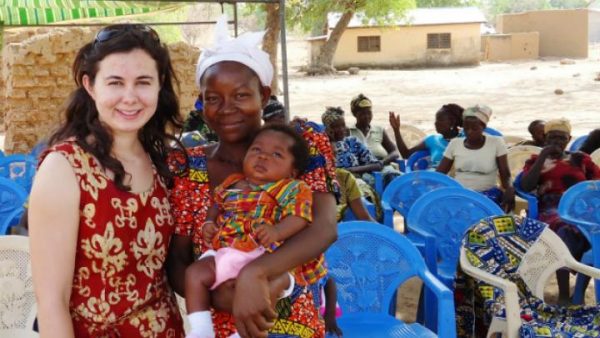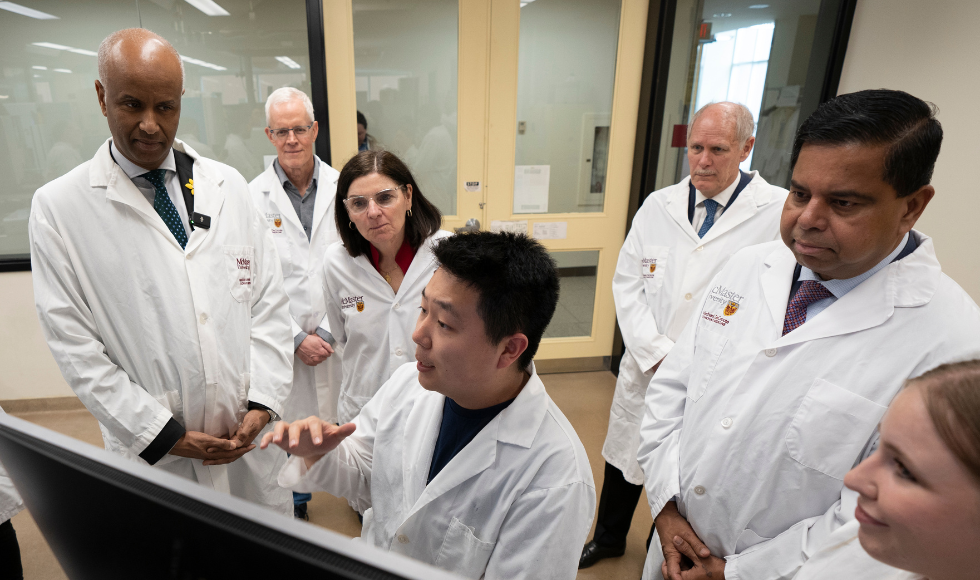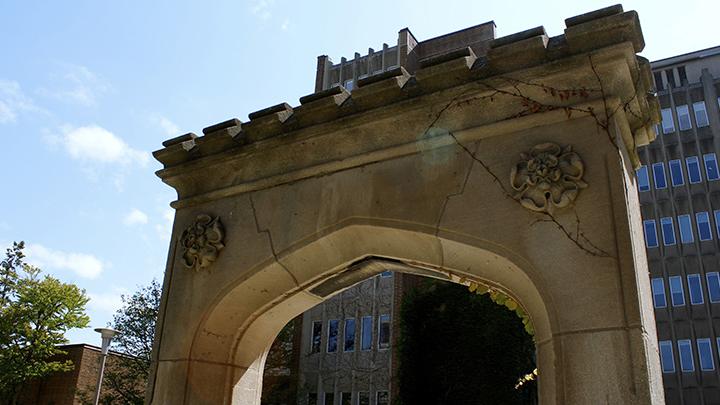All in the family: Studying fertility rates in northern Ghana

Lauren Wallace didn’t just travel overseas for her PhD research. She spent a full year in a small town in northern Ghana, living on her own and conducting research on a topic that isn’t particularly easy to talk about in most places Ð contraceptive use.
“At first, I spent a lot of time getting to know people, doing their genealogies, asking about their families, and helping with the farming” says Wallace, a medical anthropologist in her third year of PhD studies in McMaster’s department of anthropology.
She explains that a key part of an anthropologist’s role is to fully participate in the life of the community. About halfway into her year, she had become part of the community and she began her one-on-one interviews.
Wallace is no stranger to Africa. In 2007, she travelled to Kenya with Free the Children to help build a school. She returned in 2008 with a group she organized to climb Mount Kilimanjaro, raising $16,000 for an AIDS clinic in Lesotho. Then, she traveled to northern Ghana to work in eye health as a Global Impact Fellow with the NGO Unite for Sight.
She loved Ghana and connected with the Navrongo Health Research Centre.
“I learned there had been a significant drop in fertility rates. I was really interested in that.”
From June 2013 to April 2014, she interviewed and observed citizens and health-care providers in the Upper East Region of Ghana to better understand the social, political and economic issues influencing family size, family planning and contraceptive use. Wallace was guided by Dr. Philip Adongo, head of the department of social and behavioural sciences, School of Public Health at the University of Ghana.
Ultimately, she also hopes her research will provide insight into the realities of families’ lives in rural northern Ghana.
Wallace credits the collegial nature of the Department of Anthropology as one of the main reasons she chose McMaster.
“I knew immediately this was the place I was meant to do my graduate work” says Wallace, a 2013 CIHR Vanier Scholar, whose PhD supervisors are Ann Herring and Wayne Warry.
Another factor in her choice of McMaster was the funding she received from a Harry Lyman Hooker Senior Graduate Fellowship, established in 1979 from the estate of physician and philanthropist Harry Lyman Hooker.
“Mac has a great community of donors,” says Wallace. “The generous funding—combined with McMaster’s leadership in health research and its reputation for excellence in anthropology Ð made my decision easy.
Read Lauren Wallace’s op-ed in the Globe and Mail on the stigma and stereotypes surrounding the Ebola outbreak.
ResearchRelated News
News Listing

Applications are open for graduate residency at the Sherman Centre
Research, Skills-building
June 20, 2024

Daily News ➚
A win for Canadian research: Ottawa boosts funding for graduate students, research grants
Postdoctoral, Research, Student life
April 19, 2024

